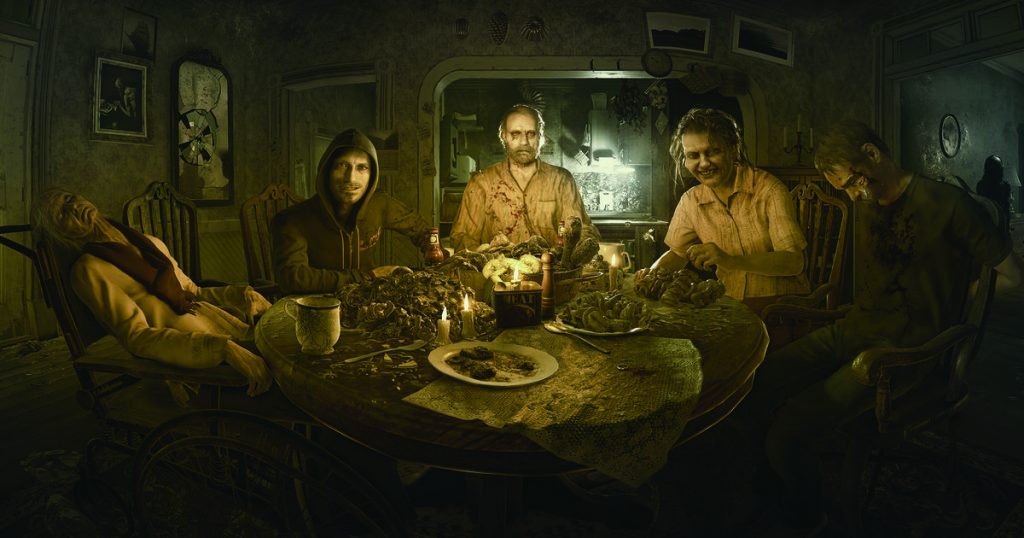Resident Evil is back, baby.
Although it never really went away, of course, what with entries from the mainline series as well as various spin-offs like the Resident Evil: Revelations games and Umbrella Corps – not to mention other media such as the retina-searingly abysmal movie series – still appearing on a fairly regular basis over the years.
But as someone who’s been a big fan of the series since buying the original Resident Evil alongside my PlayStation twenty years ago, it’s been disappointing to see it move further and further away from its survival horror roots and into increasingly over-the-top, action- and co-op-focused territory. So you can imagine my delight when in 2016 Resident Evil VII: Biohazard (or Biohazard VII: Resident Evil in Japan) was revealed, with Capcom stating that they wanted to take the series back to its roots – exactly what I’d been wanting to hear for many years. (For more on this, see my Horror Comes Home: The Revelation of Resident Evil VII feature on this site.)
So does Resident Evil VII: Biohazard achieve this goal? You bet your sweet cheeks it does.
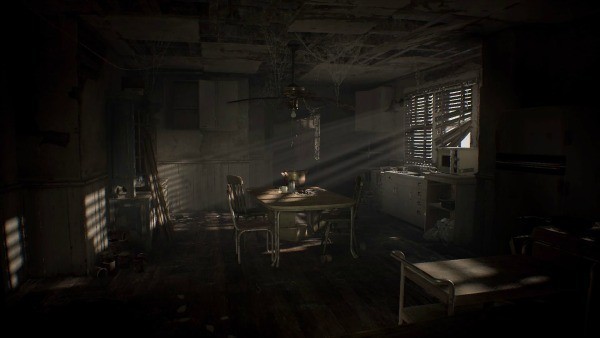
Directed by Koshi Nakanishi (Resident Evil: Revelations), REVII casts you as Ethan Winters, a man whose wife, Mia, went missing three years ago. But now Mia has apparently resurfaced in Louisiana, at an isolated plantation owned by the Baker family. You take control of Ethan as you arrive at the property, only to soon be drawn into a nightmarish fight for survival against twisted members of the Baker family as well as a number of unfortunate people who have been mutated into dangerous creatures known as “Molded.”
Progressing through the game involves exploration, puzzle-solving, resource management, and fighting or evading enemies, and a nice balance is struck between these gameplay elements for the majority of the time. In fact, REVII reminds me more of the original title than any other in the series, largely due to its main setting, level design and atmosphere, and while this latest game does tie into the series as a whole, it’s actually much more focused on telling its own story, free from the baggage which can come with a longstanding fictional universe.
Speaking of the game’s writing, while it’s flawed at times, for the most part I really enjoyed it. (Compared to some Resident Evil games, it’s fucking Shakespeare). There were some great scenes, lines of dialogue and twists, and also a surprising amount of ambiguity and unanswered questions, these mysteries being more intriguing than frustrating, with a few being prominent enough that they’ll hopefully be addressed in either future downloadable content or the next game in the series.
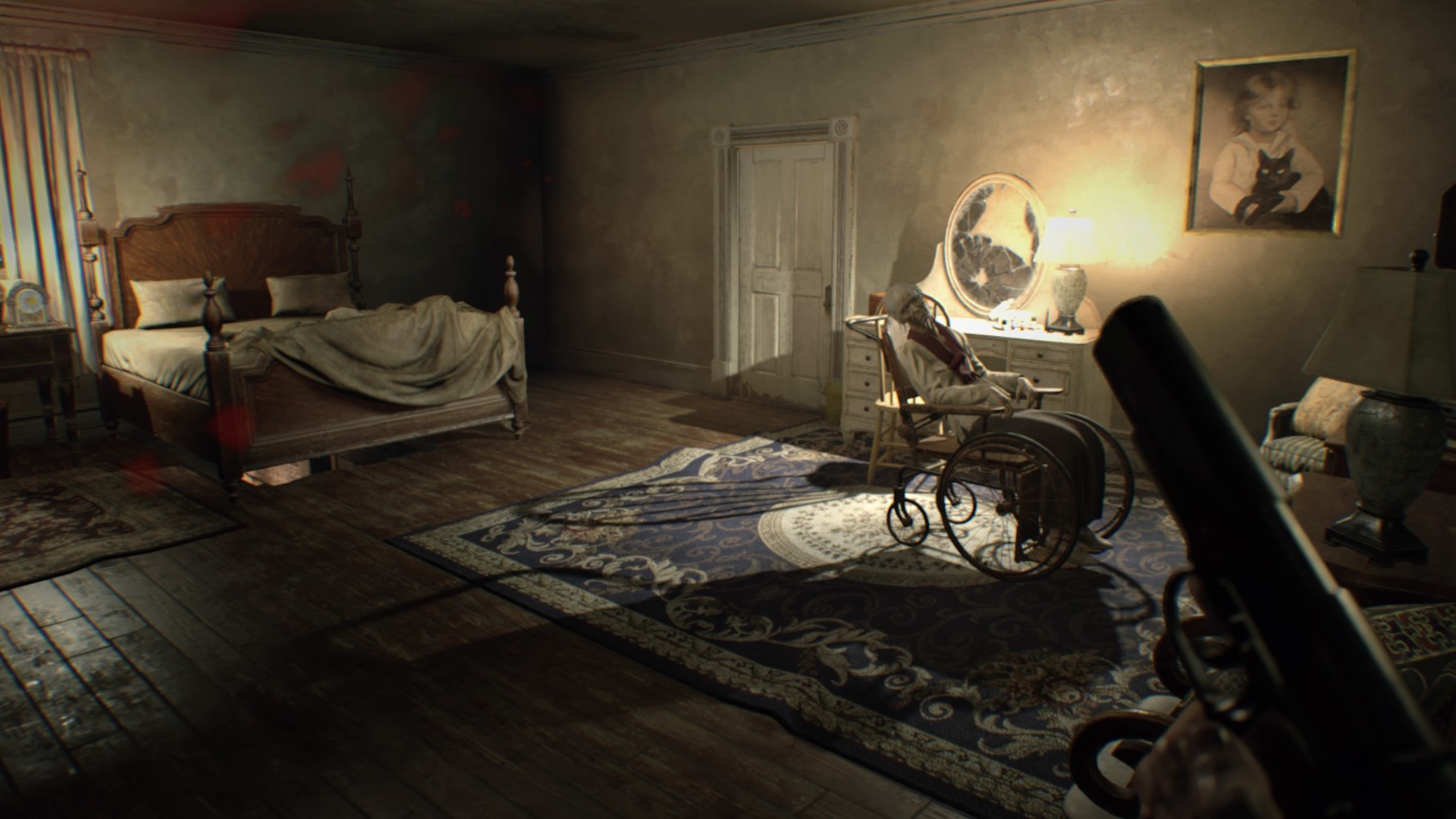
REVII is the first mainline Resident Evil game to utilise a first-person camera, allowing you to view the game’s environments and characters – impressively brought to life by Capcom’s RE Engine – up-close and personal, helping to immerse you in the dark, grimy and neglected world of the Baker plantation, not to mention bringing you face-to-face with the people and monsters trying to dismember you. (An experience apparently made even more intense when played in PlayStation VR, although I haven’t done so myself). The first-person combat works well, feeling satisfying and offering a decent range of melee weapons and firearms, although some weapons certainly seemed a lot more useful than others. (Trying to poke that massive boss to death with a giant, novelty foam hand was a complete disaster).
Evasion is often an option when it comes to enemy encounters, particularly during times when you’re being hunted by one of the malevolent Bakers, and these sequences can be very tense if you sneak around and try to avoid detection while your pursuer searches for you, making sinister comments as they go. While very different in some ways, these encounters brought to mind the Nemesis from Resident Evil 3: Nemesis: a very powerful and persistent enemy who would appear at certain times and who you could either fight or flee from.
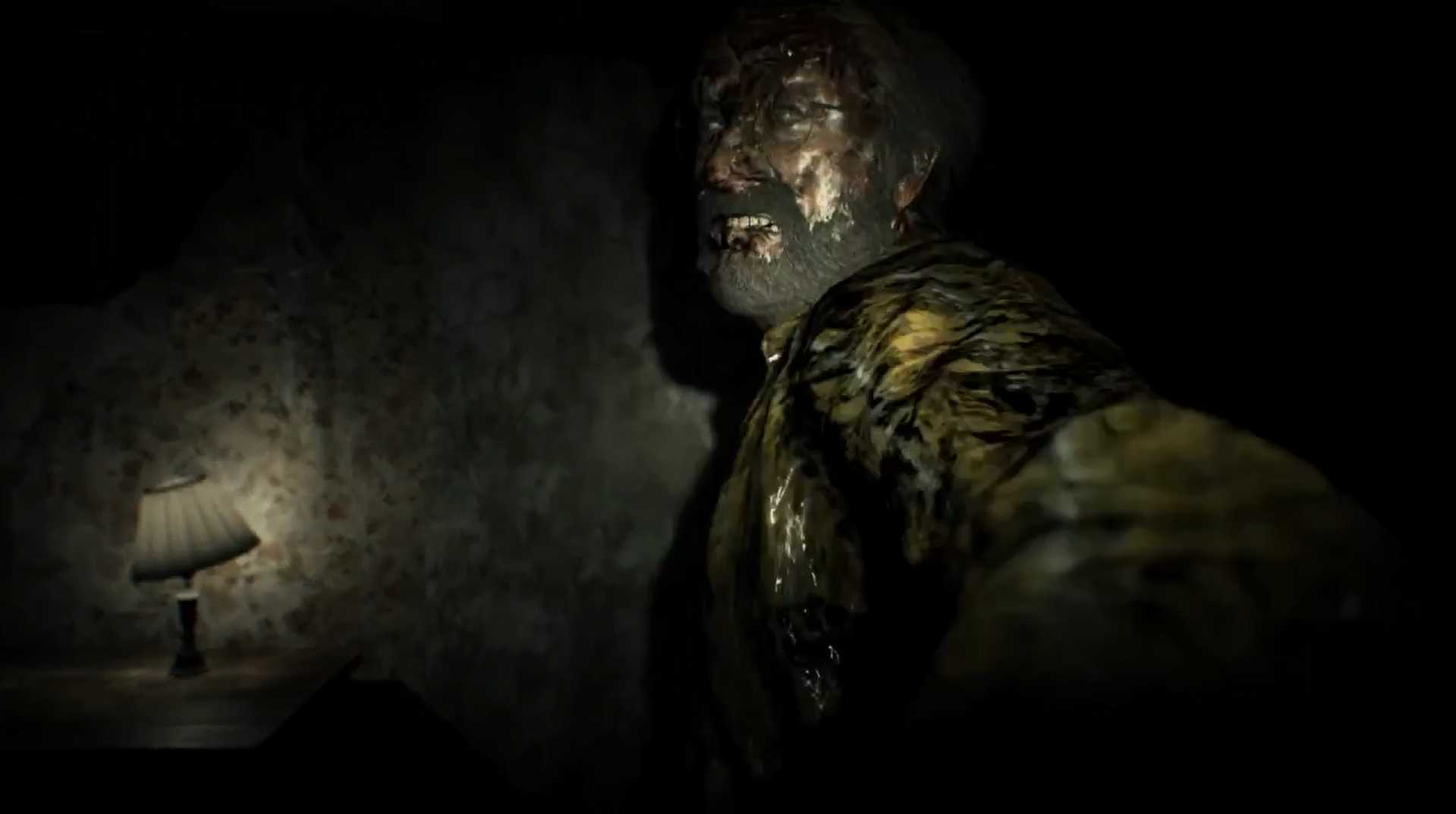
Alongside the visuals, the sound design also plays an important part in immersing you in the game, such as when you’re inside one of the plantation’s houses and you hear rain lashing at windows, wind whistling, and the various creaks and groans you’d expect to hear coming from an old, large building. The voice acting also deserves praise, the actors behind the Bakers and other characters doing a great job in giving their respective characters personality and charisma. I’m also a big fan of Go Tell Aunt Rhody, a new arrangement of an old folk song and one which serves as the game’s theme.
Atmosphere is something which REVII excels at not just with its sound and visuals but also its pacing, the developers doing a great job of combining subtler, quieter gameplay segments with more frantic ones, causing the experience to flow well as a horror game. The perfect example of this is the game’s opening, which starts off slow and builds tension for quite some time before events suddenly and violently fly out of control – it’s an unleashing of horror which you know is coming at some point and in some form, and when it does hit, it does so in spectacular, shocking fashion. It’s also nice to see that the game doesn’t rely too heavily on jump-scares, and that most of the ones it does contain are implemented very well.
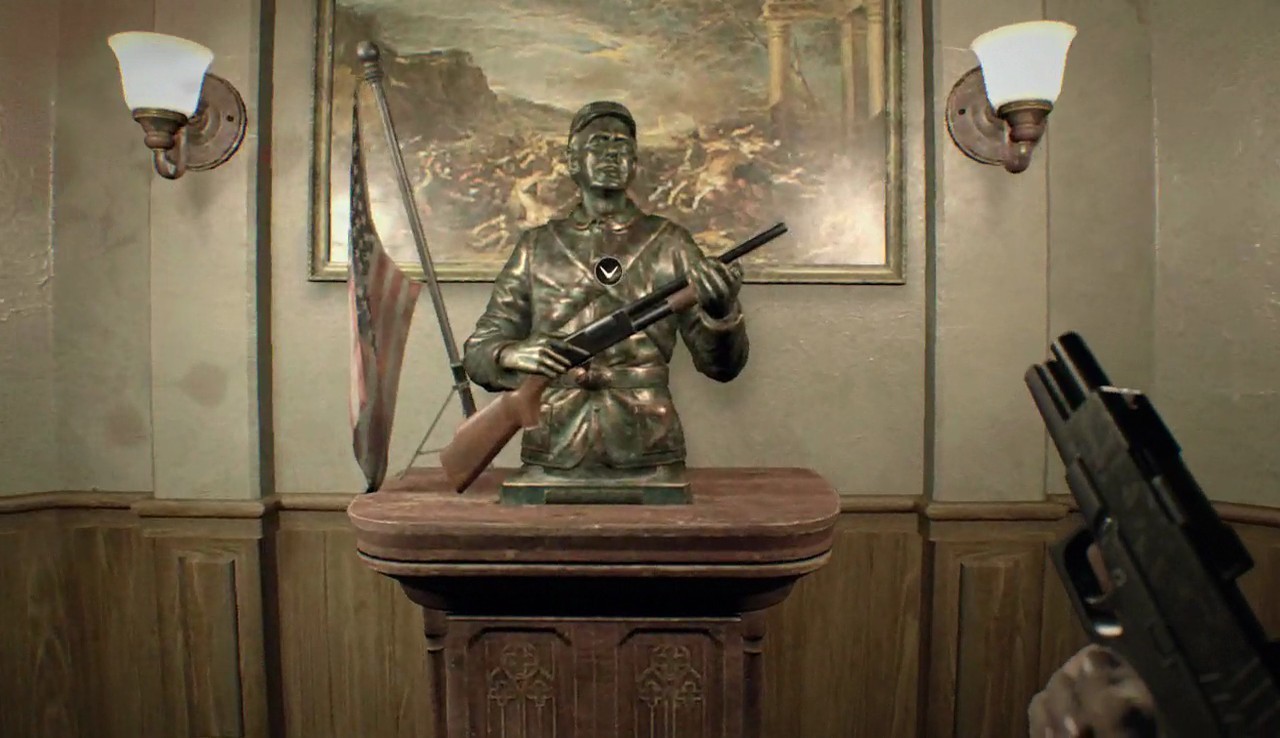
As much as I love REVII, it does have its flaws, such as a lack of enemy variety, the first half of the game being superior to the second (in my opinion), resource management becoming less and less of a factor as the game continues, and the incredibly obnoxious blood effect which appears on-screen after you’ve taken enough damage – Ethan even wears a health indicator on his wrist, making the effect doubly unnecessary.
But these negatives are easily outweighed by the many things the game does right, returning to its former quality and status a series which had become a shadow of its former self. (If you recognise that Resident Evil reference, congratulations, have a biscuit). In fact, it’s almost hard to believe that Capcom, just one of many large developers / publishers who have made their share of terrible and greedy choices in recent years, actually lived up to their word and put the time and effort into achieving a creative vision rather than just chasing sales figures – lo and behold, this resulted in a fantastic videogame.
And as for those people who choose to moan about REVII because they prefer their Resident Evil games to be action-focused experiences, they can put their toys back in their pram and settle down because the series has long been successful enough to feature regular spin-off games, so there’s no reason why Capcom couldn’t cater to those fans with suitable titles while also keeping survival horror fans happy with different titles. See? Everyone’s happy.
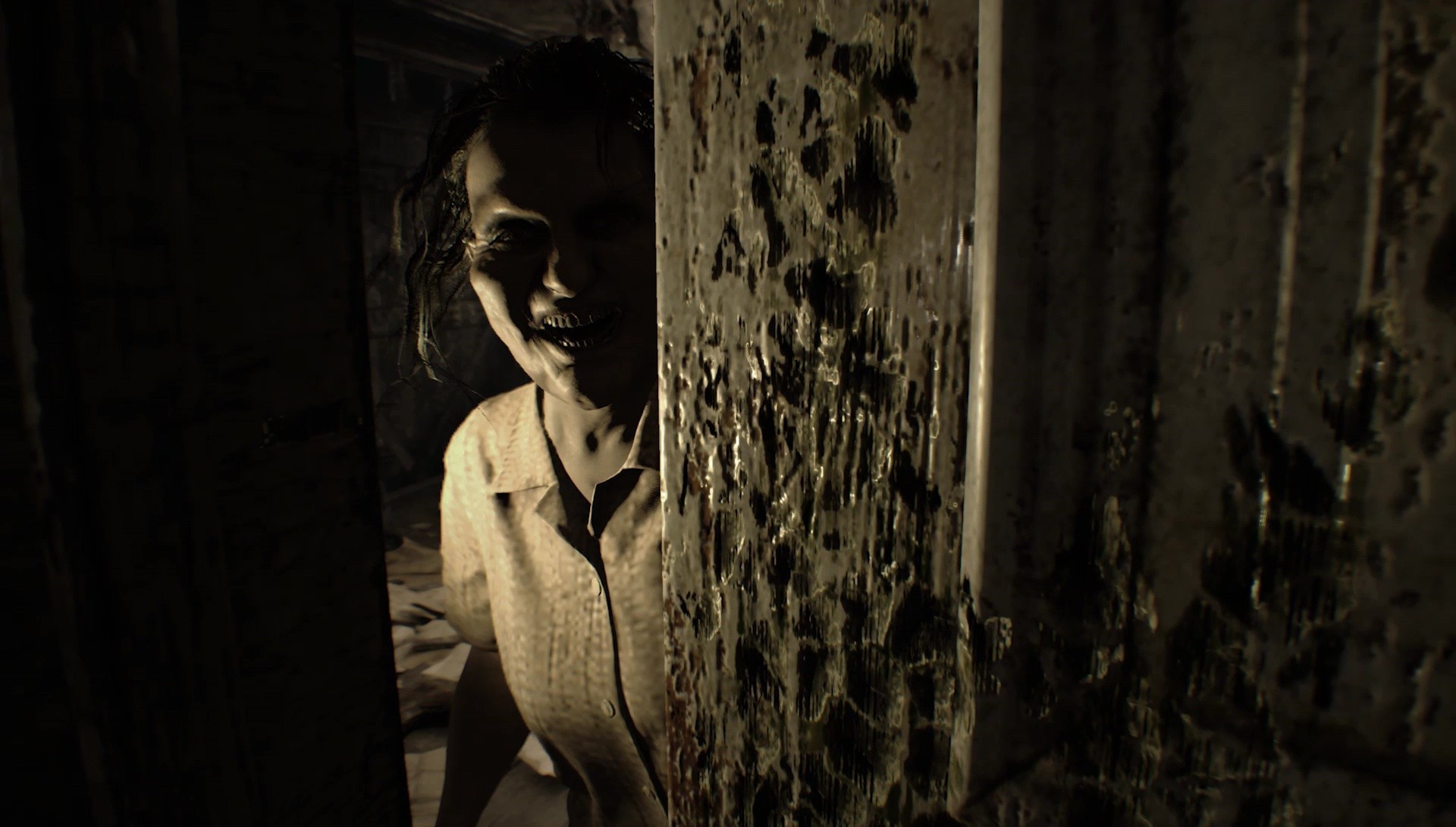
On a final note, if you’ve yet to play REVII but are planning to, be sure to download and play the Beginning Hour demo first, as the demo isn’t a slice of content from the main game but rather a separate prequel episode, one which the game – as well as some of its downloadable content – references in various ways.
I was excited for REVII before its release, and Capcom, to their credit, not only fulfilled my hopes for the game but exceeded them. It’s a brilliantly entertaining horror game and an incredible return to form which continues to leave me excited about the future of the series.
Emily Medlock is an avid gamer whose passions not only include video games of all kinds, but anime, music, movies, and reading.

